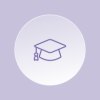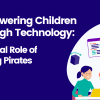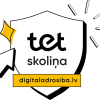RIDE - Robotics for the Inclusive Development of Atypical and Typical Children
Launched in 2019 by Abacusan Studio, the RIDE (Robotics for the Inclusive Development of Atypical and Typical Children) project set out to develop a complex and inclusive approach to developing the core 21st century digital competences of teachers and learners in mainstream education. So far, the Erasmus+ funded project has been implemented in 7 European countries (Hungary, Spain, Italy, France, Austria, Slovakia, Romania) as well as Turkey, and further expansion is planned.
The RIDE method: a playful approach to learning programming
The RIDE method introduces children aged 8-14 to the basics of robotics and programming. The innovative aspect of the method is that children are tasked with building robot characters based on story texts and to programme them in such a way that their movements and interactions present the characters and scenes read in the text, much like a 'Digital Puppet Theatre'. This approach combines the Guttenberg and the Neumann galaxies to both reach children who are interested in computer science (and often don't like to read), as well as children who love literature but might be averse to programming.
This cooperative methodology based on children's creativity utilises a playful approach to make robotics and programming attractive for all children. This not only helps to spread digital literacy, to enrich children's digital competences and programming skills, but also to give access to these skills and knowledge to children who would otherwise be excluded. In order to ensure that all children can develop digital competences, especially programming skills, RIDE proposes 4 different levels of robotics programming solutions in the curricula. This way, even children working together in a group can upgrade their digital competences to their own level.
Digital competences for all ages
RIDE targets both children and adults. The project aims to help primary school children develop their digital and key competences in a playful, accessible and inclusive way, adapted to their existing knowledge to prepare them for the challenges they will face as adults.
Teachers of small kids, teachers of literature and foreign languages, librarians are beginning to learn programming and incorporate it into their everyday teaching practice. RIDE also aims to help teachers learn the basics of programming and robotics, develop their digital competences, in order to confidently use digital technologies in both their professional and personal lives. Thanks to the Scratch-based programming of robots, teachers can easily learn the basics of programming, overcome their fears and start using programming as a tool in their daily teaching practice. Teachers are prepared with detailed teacher's guides, lesson plans, programming tutorials and robotics teaching topics in the RIDE curriculum base.
Why is this a good practice?
The RIDE method is unique among digital education methods, including those using educational robotics, for its complex and inclusive approach, its multi-dimensional developmental impact and its validation by international academic researchers. The project’s method has been integrated into the teacher training curricula of the participating universities and methodological centres.
RIDE introduces children to the basics of robotics and programming in an informal way through storytelling in the ‘Digital Puppet Theatre’ and can therefore appeal to those who are not yet comfortable with the topic. By targeting teachers as well as children, its impact is multiplied, as teachers using this method reach new groups of children year after year.
In addition, RIDE is designed to be accessible and useful for children with learning, understanding or communication disabilities. The project does this by presenting programming solutions of different difficulties and by allowing children to read texts at 3 levels of language difficulty. In addition, specific methodological suggestions are made to support the development of children with different learning difficulties.





